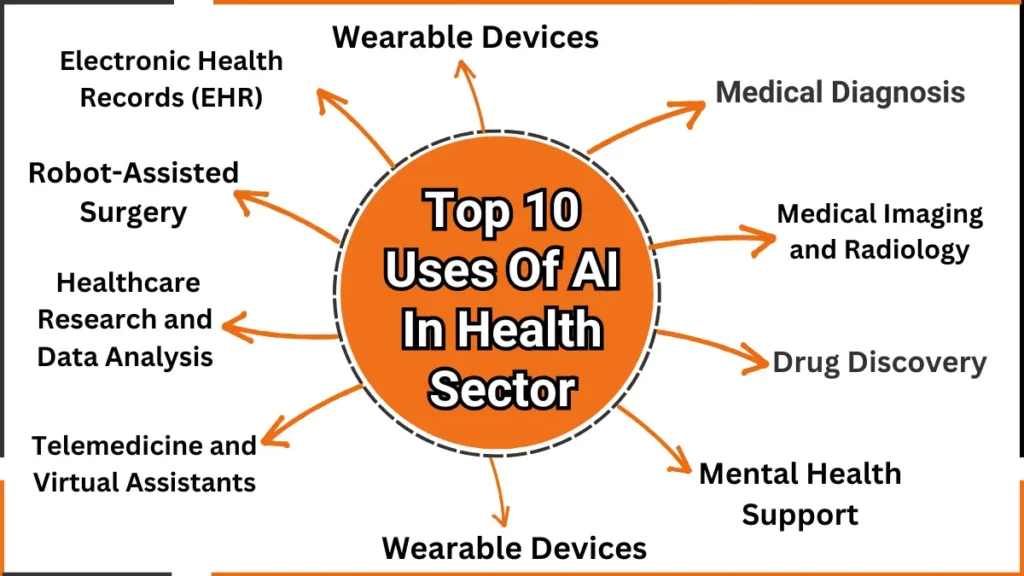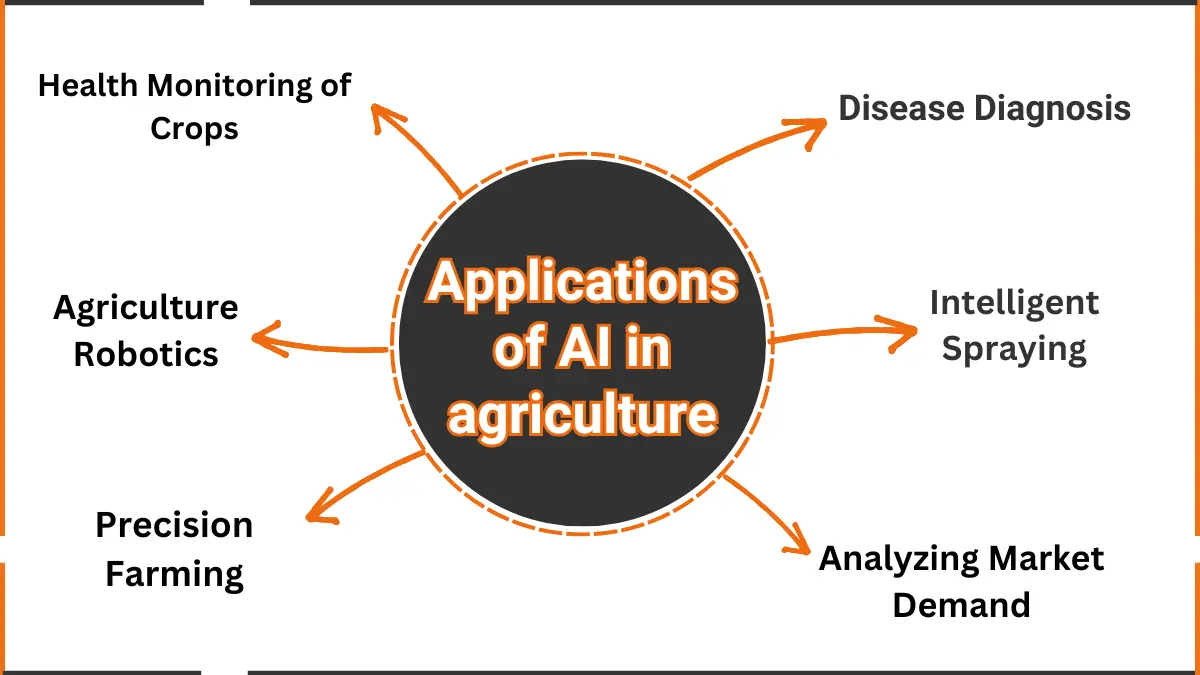Top 10 Uses Of AI In Health Sector
Artificial Intelligence (AI) has emerged as a game-changer in the healthcare industry. It has changed how medical professionals diagnose, treat, and manage patient care.
AI is being used in different fields, With its ability to analyze vast amounts of data and identify patterns, AI is transforming healthcare delivery, improving patient outcomes, and driving advancements in medical research.
In this article, we will provide deep insight into AI’s uses in healthcare and its impact on various aspects of the industry.

Uses of AI in the Health Sector
AI is playing an important role in the health sector.
1. Medical Diagnosis
AI algorithms are being deployed to assist healthcare professionals in accurate and timely medical diagnoses. Machine learning models can analyze patient data, symptoms, and medical history to provide doctors with valuable insights and recommendations.
AI-powered systems can assist in the early detection of diseases, such as cancer, and offer more precise diagnoses.
2. Medical Imaging and Radiology
AI has changed medical imaging interpretation and radiology practices. Deep learning algorithms can analyze medical images with remarkable accuracy, such as X-rays, CT scans, and MRIs. AI-powered systems aid in detecting abnormalities, assisting radiologists in identifying potential conditions or anomalies that might have been missed.
3. Personalized Medicine
AI is crucial in developing personalized medicine and tailoring treatment plans based on individual characteristics. By analyzing genetic data, patient history, and clinical data, AI algorithms can predict patient responses to specific medications, optimizing treatment effectiveness while reducing adverse reactions.
4. Drug Discovery
AI speeds up the drug discovery and development process by sifting through vast amounts of scientific literature, genetic data, and clinical trial information. Machine learning algorithms help identify potential drug candidates, predict their efficacy, and accelerate identifying novel therapies for various diseases.
5. Mental Health Support
AI-based applications can provide mental health support, including chatbots, virtual therapy sessions, and personalized interventions.
6. Electronic Health Records (EHR)
AI enhances the management and analysis of electronic health records. Natural Language Processing (NLP) techniques enable the extraction of valuable information from unstructured medical records, improving efficiency and supporting clinical decision-making.
AI systems can help identify patterns, predict disease progression, and alert healthcare providers to potential risks or treatment options.
7. Wearable Devices
AI can analyze data from wearable devices, such as fitness trackers and smartwatches, to monitor health parameters and provide personalized insights for preventive care.
8. Telemedicine and Virtual Assistants
AI-powered chatbots and virtual assistants are becoming increasingly prevalent in telemedicine. These intelligent systems provide patients with personalized care, answer queries, schedule appointments, and offer basic medical guidance, reducing the burden on healthcare professionals and improving access to healthcare services.
9. Robot-Assisted Surgery
AI-enabled robots can assist surgeons during complex procedures, enhancing precision, reducing invasiveness, and improving patient outcomes.
10. Healthcare Research and Data Analysis
AI enables researchers to analyze large datasets quickly, facilitating medical research and clinical trials. Machine learning algorithms can identify trends, uncover correlations, and predict outcomes, aiding in developing new treatments, interventions, and population health management strategies.
FAQs
How is AI used in healthcare?
AI assists in diagnosing diseases, analyzing medical data, personalizing treatment, and automating administrative tasks.
Can AI help diagnose diseases?
Yes, AI analyzes medical images and patient data to detect diseases like cancer, heart conditions, and infections more accurately and quickly.
Is AI used in drug discovery?
Yes, AI speeds up the drug discovery process by analyzing chemical compounds and predicting which ones may work for treating certain diseases.







Leave a Reply